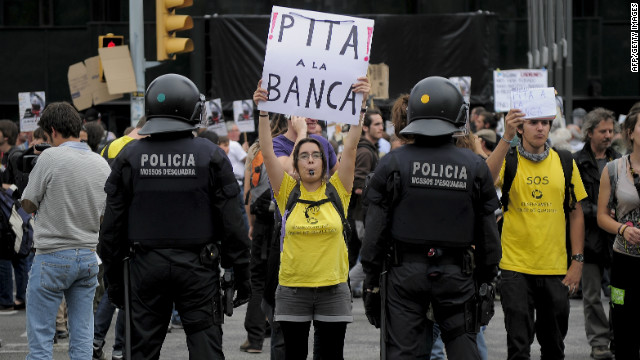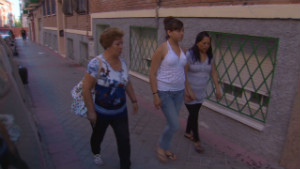
- Catalonia will request an emergency ?5bn credit line from Spain's central government
- Region struggles to refinance its debts, underscoring anxieties about the eurozone debt
- Comes a a week before the European Central Bank is expected to unveil revamped bond program
(Financial Times) -- Catalonia will request an emergency ?5bn credit line from Spain's central government as the region struggles to refinance its debts, underscoring anxieties about the eurozone debt crisis a week before the European Central Bank is expected to unveil details of its revamped bond-buying programme.
The government of Catalonia, which has debts of ?42bn and manages an economy as large as Portugal's, on Tuesday said it would request the aid from Spain's regional bailout fund. The region has been locked out of capital markets and will become the second of Spain's 17 autonomous regions to formally request aid from a ?18bn government rescue fund.
Francesco Homs, spokesman for the regional government, said it would not accept additional political conditions over budgetary measures already agreed with Madrid "because the money is Catalan money" -- a stance that risks fostering further tension with Spain's central government after Catalonia boycotted a meeting to set regional budgets in late July.
The request came as private deposits at Spanish banks dropped at the quickest pace since the launch of the euro and data confirmed the Spanish economy shrank for the third consecutive quarter between April and June.

 Spain's olive oil crisis
Spain's olive oil crisis 
 Selling sperm, eggs to survive
Selling sperm, eggs to survive 
 Family struggles to keep home in Madrid
Family struggles to keep home in Madrid Mario Draghi, ECB president, also pulled out of a gathering of top central bankers later this week ahead of next Thursday's governing council meeting.
Mr Draghi was scheduled to speak at the Federal Reserve Bank of Kansas City's annual economic symposium, held in Jackson Hole, Wyoming. A spokesperson for the ECB blamed "the heavy workload foreseen in the next few days" for Mr Draghi's decision to remain in Frankfurt.
Other members of the ECB's executive board have also cancelled their plans to travel to Wyoming. The eurozone central bankers that make up the ECB's governing council expect to be able to agree on the details of the bond-buying programme by September 6. But there are increasing doubts about whether this will be possible, according to people familiar with the discussions.
Mariano Rajoy, Spanish prime minister, has said his government will consider the merits of requesting a full European rescue to bring down its borrowing costs. After meeting with Herman Van Rompuy, president of the European Council, he reiterated that he would act in the best interests of Spaniards but no decision had been made about a rescue. "There are no negotiations [over a rescue] as the government has not requested one. There are none whatsoever," Mr Rajoy said. Speaking of the Catalan aid request he said: "Spain will help Catalonia as it has done before."
Earlier on Tuesday an auction of ?3.6bn short-term debt by Madrid saw its borrowing costs fall, with the interest on Spanish three-month bills dropping to the lowest level since May this year. But Mr Rajoy said that the risk premium "remains unacceptably high and does not respond to the fundamentals of the Spanish economy".
Spanish yields have fallen since Mr Draghi pledged to do "whatever it takes" to preserve the euro and opened up the possibility that the central bank could intervene in the shorter-term bond market, if recipient countries agreed to new conditions.
Further underscoring anxieties about the extent of the crisis, corporate and household deposits at Spanish banks fell 4.7 per cent to ?1.51tn in July, accelerating a declining trend that started in the middle of last year. Deposit levels are now back at levels last seen in early 2008. The fall reflects nervousness about the stability of Europe's 13-year-old monetary union as well as Spain's economic downturn.
Spanish banks' appetite for buying Madrid's debt is also waning, with separate ECB figures showing their holdings had fallen by ?7.6bn in July.
That pointed to the waning influence of the ECB's longer-term refinancing operations, which injected more than ?1tn in three-year loans into the eurozone financial system in December and February. Spanish and Italian banks had used the ECB funds to buy government debt, helping reduce borrowing costs for Madrid and Rome.
� The Financial Times Limited 2012
savvy aircraft maintenance duats on the web business aircraft comparison
No comments:
Post a Comment